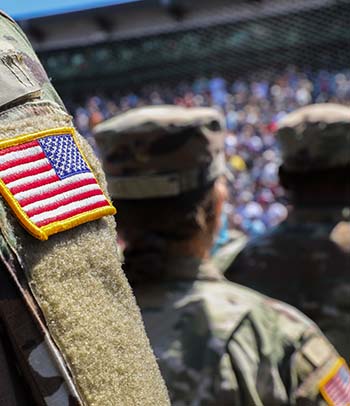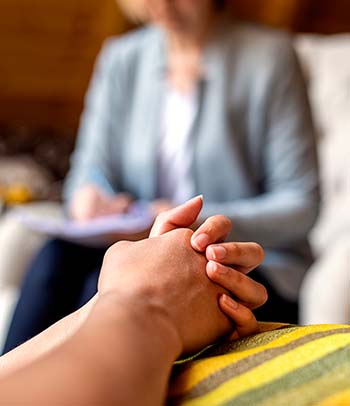Sexual violence is a serious public health problem in the United States, affecting millions of people each year. It has a profound impact on lifelong health, opportunity and well-being. According to the Centers for Disease Control and Prevention, more than 1 in 3 women experienced sexual violence involving physical contact during their lifetime, and nearly 1 in 4 men experienced sexual violence involving physical contact during their lifetime.
 Military Sexual Trauma (MST) is the Department of Veterans Affairs (VA) term for when someone is sexually assaulted or sexually harassed during their military service. Although sexual assault can be violent, it can also include other serious acts, such as being pressured into sex or being threatened, and any situation where you couldn’t give consent, like being drugged, asleep, intoxicated or unconscious. MST also includes sexual harassment, like sexual jokes about you, being touched in ways that make you feel uncomfortable, someone repeatedly making unwelcomed sexual advances or being promised something in exchange for sex. If you have experienced MST, it doesn’t matter who the perpetrator was or why it happened; it doesn’t matter whether you were on or off duty or on or off base at the time of the incident; MST is never your fault.
Military Sexual Trauma (MST) is the Department of Veterans Affairs (VA) term for when someone is sexually assaulted or sexually harassed during their military service. Although sexual assault can be violent, it can also include other serious acts, such as being pressured into sex or being threatened, and any situation where you couldn’t give consent, like being drugged, asleep, intoxicated or unconscious. MST also includes sexual harassment, like sexual jokes about you, being touched in ways that make you feel uncomfortable, someone repeatedly making unwelcomed sexual advances or being promised something in exchange for sex. If you have experienced MST, it doesn’t matter who the perpetrator was or why it happened; it doesn’t matter whether you were on or off duty or on or off base at the time of the incident; MST is never your fault.
How Common Is MST?
Veterans of all ages, sexes, racial and ethnic backgrounds, and physical sizes have experienced MST. Often, MST survivors don’t talk about it, therefore, many incidents go unreported. You may think you are the only one to have experienced it, but you need to know you are not alone. MST has historically been associated with female Service members, but it is also experienced by male Service members. VA’s screening program has revealed that approximately 1 in 3 women and 1 in 50 men have reported to their VA health care provider that they experienced MST. More than 1 in 3 Veterans who experienced MST are men.
It takes courage to reach out and ask for help, but doing so can get you on the path to healing.
How Can MST Affect Someone’s Life?
Like other types of trauma, MST can negatively affect your mental and physical health, even many years after it occurred. Your reaction to MST can vary based on factors like whether you have a prior history of trauma, the types of responses you received from others at the time of the MST and whether the MST happened once or was repeated over time. Some of the symptoms you may experience include:
- Problems with anger, irritability or other strong emotions
- Difficulty feeling safe
- Feelings of depression or numbness
- Disturbing memories or nightmares
- Problems with alcohol or other drugs
- Issues with sleep
- Feeling isolated from other people
- Physical health problems
MST survivors should not suffer in silence. No matter what you are experiencing, treatments and resources are available, and VA supports many paths to healing from the impact of MST.
How to Get Support
VA offers free, confidential treatment for mental and physical health conditions related to MST. The first steps toward getting help can be the most difficult, but you don’t have to go through it alone. VA is here to help and is committed to supporting your path to healing, and wants you to know these important facts about getting care:
- You do not need VA disability benefits or a VA disability rating to get care.
- No documentation of the MST experience is required.
- You don’t need to have reported the MST.
- It doesn’t matter how long ago you experienced MST.
- You may be able to get care even if you’re not eligible for other VA services.

To learn more, call the main phone number of your VA health care facility and ask for the MST coordinator, or talk to your current VA health care provider. MST-related counseling is also available at your local Vet Center, where MST survivors don’t need to have served in a war zone to receive care. VA’s MST website is another great resource where you can learn more about VA’s support services and watch videos of Veterans telling their stories of healing and recovery.
In addition VA offers, free of cost and available to anyone, a mobile app called Beyond MST. The app was created specifically to support the health and well-being of survivors of MST and offers more than 30 tools and features to help MST survivors manage symptoms, cope with challenges, improve their quality of life and find hope. Users do not need to create an account or be in treatment, and all personal information entered into the app is not shared with anyone, including VA.
Help, Hope, and Healing
If you are struggling with the aftermath of MST, you may worry about being judged or not believed if you speak up. Compassionate VA professionals are ready to listen and help connect you to the resources you need. MST can be a very difficult experience, but recovery is possible, and it’s never too late to move forward. It takes courage to reach out and ask for help, but doing so can get you on the path to healing.







